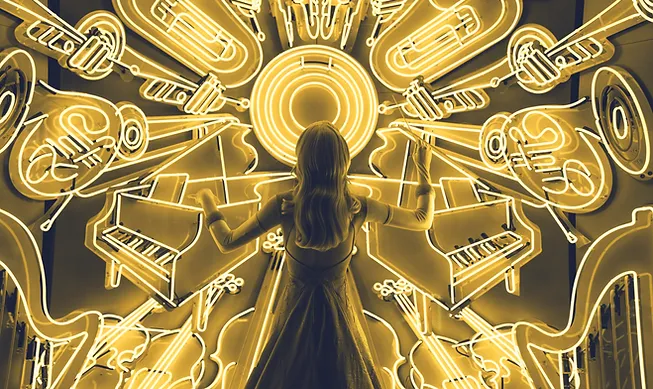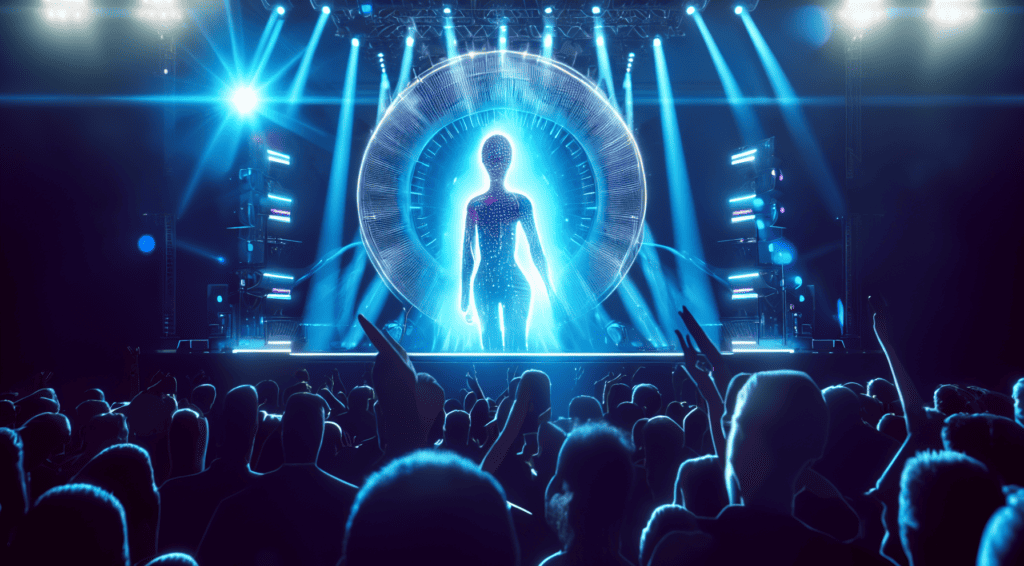By Erika Koutroumpa,
Earlier this year, a song titled “Heart on My Sleeve” made by a TikTok user with the pseudonym “ghostwriter977” became viral on the social media platform. It featured an original trap beat and lyrics, but the track was created using generative Artificial Intelligence (AI), even managing to replicate the voices of worldwide music sensations Drake and the Weeknd. Another popular trend is to use the voices of recording artists and make them, using AI, cover other popular tracks. Since then, the song has been taken down from major music platforms but it did raise questions over the legality of using such software not just in music but other art media as well.
The legal issues highlighted by this incident belong to the realm of intellectual Property law (IP), and more specifically Copyright law. Copyright law gives creators the exclusive right to reproduce, distribute, perform, or display their works, and to create derivatives of those works. Through these laws, a balance is aimed between the market and the freedom of speech perspective. On the one side of the scale, there is the concept of providing incentives for innovation in the industry, while also protecting previous work. On the other side, the freedom of voicing one’s opinion freely needs to be preserved, allowing users to comment on and make improvements on previous pieces of art.
Is the use of generative AI anything new? The answer is no. There have been sparse examples of AI use in music over the past few decades like David Bowie experimenting with a lyric randomizer in the 90s and the release of the first AI-composed album “Hello, World” in 2018. But until now, the software was not mature enough for such widespread and accurate use. AI can now detect similarities between songs to make better music recommendations on streaming platforms. However, this technology is not used just for a more streamlined music listening experience, AI can now analyze the melody, chord changes, and lyrics from the discography of a musician and create a new original song. Chat GPT has been used to write song lyrics. There are also start-up websites like Soundraw, where the user inserts their preferences and the program generates songs based on the selected mood, genre, duration, theme, and even the instruments used in the composition.
Generative AI software is trained by feeding it vast quantities of content and then programming it to use that source material to generate new pieces of art. Recording Industry Association of America declared in October 2022 that AI-based extractors and mixers were infringing the members’ rights by using music for AI training. Because AI produces output “based upon” preexisting works (input), copyright owners insist a license is needed. On the other hand, AI advocates argue that the input falls under the “fair use” exception, arguing that the result is transformative and there is no material impact on the original work’s market.
Hence, here are some relevant queries that legal systems must tackle in the coming years regarding this topic. One of the first questions posed is if the aforementioned training for the AI machines falls under fair use or is possibly copyright infringement. And supposing that programming them is not subject to copyright, does anyone have a right to claim the rights to the work if AI has been used, either in full or partially? Are the original copyright owners the only ones who can use AI to legally create a derivative of their previous artwork? Lastly, are streaming platforms liable for copyright infringements made by the users who have uploaded offending work? Getting the necessary answers will be no easy task, and it is bound to depend on previous legislation and scholars’ opinions. This article is going to be focusing on UK and US legislation.

So far, the US courts have not made any decisions on the matter that could be considered a binding precedent. The currently applicable law in this situation is the Copyright Act, which protects “works of authorship”. Both in the US Constitution and the interpretations given by the courts, the word Author has been deemed as referring to human beings, and hence animals and natural forces cannot be credited with the copyright of a creation. Hence, current precedent alludes to the belief that AI cannot be considered as an author, but merely a tool in the hands of a human being. Similarly, the US Copyright Office has issued a statement where it established its policy that AI-generated works without any human input or involvement cannot be copyrighted. In other words, the more a human is involved and the more AI is used as a tool rather than a creator, the stronger the copyright case. In the copyright filing process, the applicant needs to demonstrate 2 things: a human controlled the AI and that the machine has preserved the memory of the human input of the creative process.
US Federal law has stated in the past that streaming platforms cannot be held liable for copyright infringement for illegal works uploaded on them, but they are obliged to remove it if they are requested to do so by the owner of the copyright. Similarly, Universal Music Group urged Spotify and Apple Music to block AI platforms from scraping melodies and lyrics from their artists’ songs.
On the other hand, the UK legislation has a slightly different approach to the matter. The copyright owner of a work is the author of an original dramatic, musical, or artistic work. As per section 1(1)(a) of the Copyrights, designs, and Patents Act 1988 (CDPA), copyright protection is granted automatically, with no need for prior registration of the work like in the US. However, the main difference lies in section 9(3) of the CDPA, which recognizes that “computer-generated works” can attain some form of copyright, albeit with some limitations compared to works with only a human creator. Under the same section, it is illustrated that the author of a computer-generated work is a person “by whom the arrangements necessary for the creation of the work are undertaken. The issue with this is that for prompt-based AI programs, it is unclear whether inputting text prompts the owner of the AI tool itself would be the author. Any remaining doubt between the user and the creator of the tool can be resolved in contract though, possibly under the Terms and Conditions of the website. Lastly, the UK law has some rigid categories of copyrighted works and it is uncertain which one could potentially protect the voice of an individual.
This debacle doesn’t affect just the music industry though, but all other media of art. For example, the winner of a prestigious photography award turned down their prize after it was revealed that he tested the competition via the use of AI. Midjourney, an AI art generator is getting a lot of traction as it can be used to create images from text descriptions and prompts. And in the recent Andersen v Stability AI et al (2022), a group of artists filed a class action lawsuit against the companies behind some popular AI generators, claiming their services violated copyright and unfair competition laws, “siphoning commissions from the artists themselves.”
To conclude, the use of generative AI in music is a trending topic online, which is starting to stir up mixed reactions amongst artists and lawyers alike. Managing to strike an equilibrium between promoting both musical and technological innovation and protecting artists and pre-existing artwork will be a challenge in the years to come. The legal systems need to decide which will benefit both artists and software developers.
References
- “AI-generated works: an IP headache?”, Anna Rose, 1 June 2023, International Bar Association, Available here
- “AI created a song mimicking the work of Drake and The Weeknd. What does that mean for copyright law?”, Rachel Reed, 2023, Harvard Law Today, Available here
- “AI-generated music and copyright”, Jonathan Coote, Don McCombie, 2023, Clifford Chance, Available here
- “How Much Humanity Will AI-Generated Songs Need to Be Copyrightable? (Guest Column)”, James Sammataro, Nicholas Saady, ] 2023, Billboard, Available here




